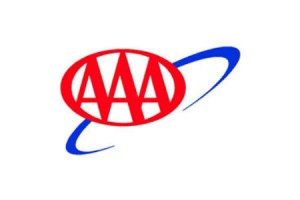
“AAA advises to be ready for such events by having an emergency kit, practice family disaster plans, and to make sure insurance policies have adequate coverage,” said Martha Mitchell Meade, AAA Mid-Atlantic Public and Government Affairs Manager. “Fortunately, this year has been an uneventful hurricane season, however, brutal winter weather experienced by many Virginians last year is a reminder to prepare well in advance in the event of an emergency,” added Meade.
AAA Mid-Atlantic created an easy to access resource, AAA.com/BePrepared, a storm preparedness guide that includes important information for taking the necessary steps to be organized and ready for anything.
Disaster Preparedness Tips
- Keep emergency and first aid kits in your home. These should include a battery-powered or hand-cranked radio, extra batteries, a flashlight, a can opener, needed medicines or prescriptions, and a three-day supply of nonperishable food and water (one gallon per person, per day).
- Keep similar supplies in your car for an emergency, as well as flares or reflective triangles, comfortable or warm shoes/boots in case you have to search for help on foot.
For example, last winter was exceptionally harsh, with AAA Mid-Atlantic roadside assistance aiding nearly 590,000 members from December 2013 to February 2014. In January alone our daily average requests for emergency roadside assistance topped nearly 7,200, up from an average of 5,900 per day in January 2013.
- Prepare a family emergency plan that outlines what each family will do, how they will get to a safe place, and how they will get in touch with each other.
- Identify an out-of-the-area contact for everyone to call in case local communications are disrupted.
- Don’t forget your pet(s). Make sure you have supplies for them. Consider micro-chipping your dog and/or cat so if you’re separated they can be easily identified.
- Have cash and copies of your most important papers (ID, insurance documents) handy in case you need to evacuate quickly.
- Visit AAA.com/HomeInventory to learn how to create a home inventory of all the possessions you would want your insurance company to replace, if lost, and put copies in safe places. A home inventory includes taking video or photos of all those possessions and pulling together copies of sales receipts and other documentation. Safe and easily accessible places to store copies of the inventory include online, with friends or family, or in a safe deposit box.
- Take CPR and first aid training from your local chapter of the American Red Cross, fire department or similar organization. The knowledge you gain could help save the life of a family member or a neighbor injured during a disaster.










